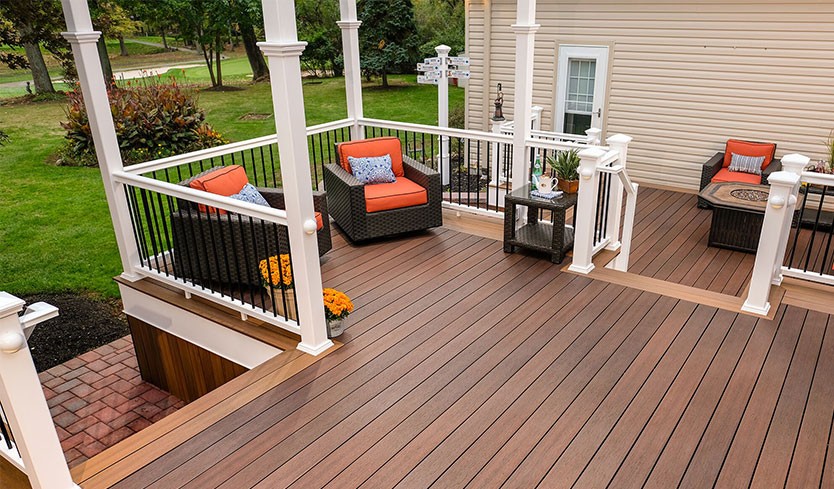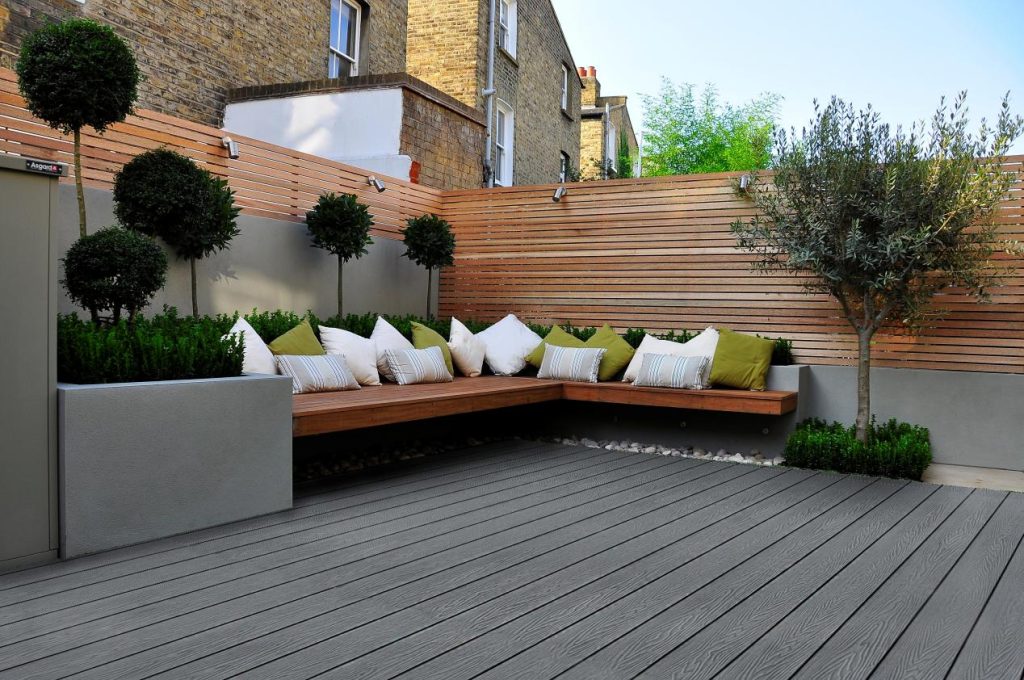Types of Plastic Fence Panels
Vinyl Panels: Vinyl is a popular material for plastic fence panels due to its durability and low maintenance. It’s available in various styles and colors, mimicking the look of wood or providing a sleek, modern appearance.
PVC (Unplasticized Polyvinyl Chloride): UPVC panels are another type of vinyl fencing known for their strength and resistance to weathering. They are often used for both residential and commercial applications.
HDPE (High-Density Polyethylene): HDPE panels are sturdy and resistant to impact, making them suitable for areas where strength and security are priorities.
Composite Panels: These panels combine plastic with wood fibers or other materials to create a more natural appearance while maintaining the durability of plastic.
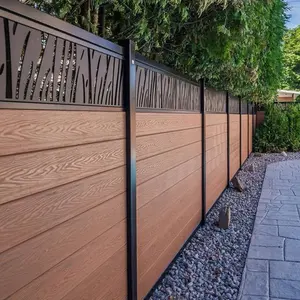
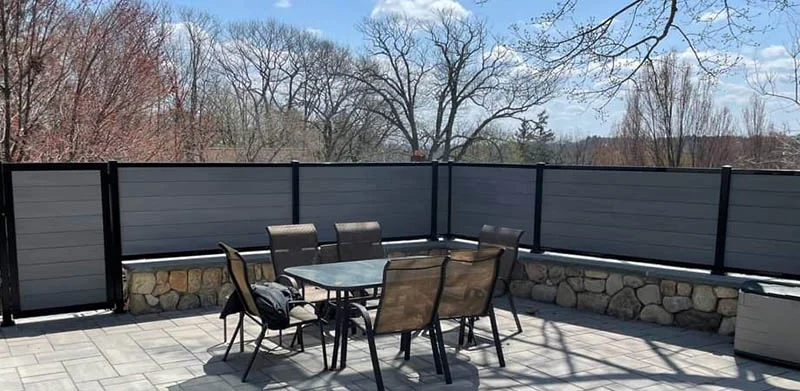
Advantages of Plastic Fence Panels
Durability: Plastic fence panels are resistant to rot, decay, and insects, unlike wood. They also withstand weather elements such as rain, snow, and UV rays.
Low Maintenance: They require minimal upkeep compared to wood or metal fencing. Cleaning usually involves washing with soap and water to maintain their appearance.
Versatility: Available in various styles, colors, and textures, plastic fence panels can complement different architectural styles and landscaping preferences.
Longevity: With proper installation and maintenance, plastic fence panels can last for decades, providing a long-term fencing solution.
Ease of Installation: Many plastic fence panels are designed for easy installation, often using interlocking systems or simple mounting mechanisms.
Installation Methods
Panel Installation: Panels can be installed individually or linked together using rails or posts. Some panels come pre-assembled, while others require on-site assembly.
Post-and-Rail System: This involves setting posts into the ground and attaching panels between them. It’s a common method for vinyl and UPVC fencing.
Interlocking Panels: Panels with interlocking mechanisms snap together, simplifying installation without the need for fasteners.
Mounting Systems: Some panels are designed to be mounted onto existing structures like walls or metal frames, offering flexibility in placement.
Maintenance Tips
Cleaning: Regularly clean panels with mild detergent and water to remove dirt, grime, and mold. Avoid harsh chemicals that could damage the plastic.
Inspection: Periodically inspect panels for any damage, such as cracks or loose fittings, and repair or replace affected sections promptly.
UV Protection: Apply a UV protectant if recommended by the manufacturer to prevent fading or discoloration over time.
Snow Removal: In snowy regions, gently remove snow from panels to prevent stress on the fencing structure.
Environmental Considerations
Recyclability: Many plastic fence panels are recyclable, promoting sustainability in fence manufacturing and disposal.
Longevity: The durability reduces the need for frequent replacements, minimizing environmental impact compared to materials like wood.
Energy Efficiency: Some panels are manufactured using energy-efficient processes, reducing their carbon footprint.
Material Choice: Choose panels made from recycled plastic or those manufactured with sustainable practices to further reduce environmental impact.
Popular Uses of Plastic Fence Panels
Residential Fencing: Used for privacy, security, or decorative purposes around homes and gardens.
Commercial Fencing: Provides security and boundaries for commercial properties, parks, and public spaces.
Pool Fencing: Complies with safety regulations while offering durability and low maintenance around pools and spas.
Ranch and Agricultural Fencing: Used to contain livestock or mark boundaries on farms and ranches.
Noise Barrier Fencing: Helps mitigate noise pollution in urban areas when combined with soundproofing materials.
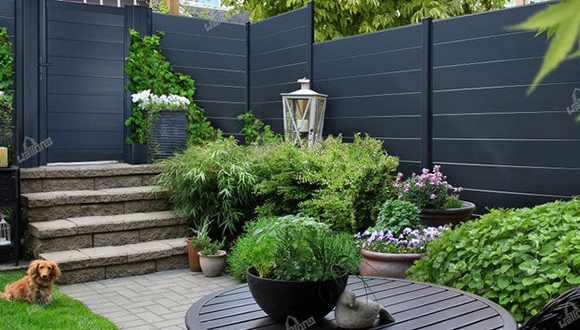
Considerations Before Purchasing
Cost: Compare prices of different types and brands of plastic fence panels, considering installation costs if hiring professionals.
Aesthetic Appeal: Choose panels that complement your property’s style and landscaping.
Climate Suitability: Select panels designed to withstand specific weather conditions in your region, such as extreme heat or cold.
Warranty and Support: Check the warranty offered by the manufacturer and inquire about customer support for installation and maintenance queries.
Conclusion
Plastic fence panels offer a versatile, durable, and low-maintenance fencing solution suitable for various residential, commercial, and industrial applications. Understanding the different types, installation methods, maintenance requirements, and environmental considerations will help you make an informed decision when choosing plastic fence panels for your property. Whether you prioritize longevity, aesthetics, or environmental sustainability, plastic fence panels provide a viable alternative to traditional fencing materials with their unique blend of benefits.
Relationship Between WPC and Plastic Fence Panels
Similarities
Both WPC and plastic fence panels offer durability and low maintenance, making them attractive alternatives to traditional wood fencing.
They are resistant to weather elements such as moisture, UV rays, and temperature fluctuations, ensuring longevity in outdoor environments.
Differences
Material Composition: WPC contains a significant amount of wood fibers, which gives it a more natural appearance resembling wood. In contrast, plastic fence panels are primarily made from plastic materials, offering a sleeker, modern look.
Aesthetic Options: WPC can be manufactured to mimic various wood species and textures, providing a broader range of aesthetic options compared to plastic panels.
Environmental Impact: WPC may have a lower environmental impact depending on the sourcing of wood fibers and the recycling capabilities of the plastic components. Plastic fence panels made from recycled materials or with sustainable practices can also be environmentally friendly.
Applications
- WPC is often preferred in applications where a natural wood look is desired, such as residential decking or garden fencing.
- Plastic fence panels are commonly used in settings where durability, low maintenance, and modern aesthetics are priorities, such as urban residential fencing or commercial property boundaries.
WPC blends the natural look of wood with the durability of plastic, appealing to those who seek a traditional appearance with modern benefits.
Looking for better quality and more environmentally friendly WPC fence panels? Feel free to contact us via Fax: +86 553 3818181 Email: [email protected] Web: www.hosungwpc.com , and our knowledgeable team will be delighted to assist you.

